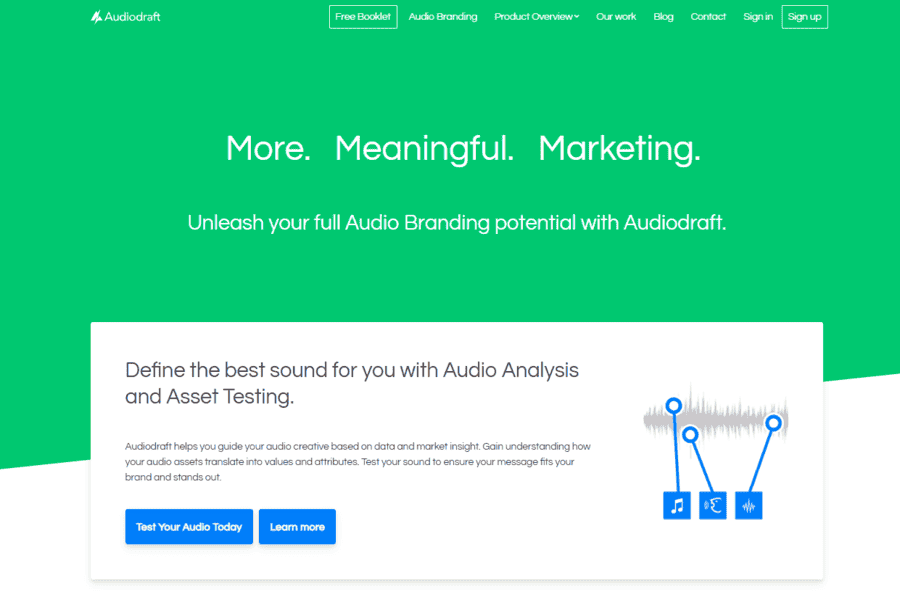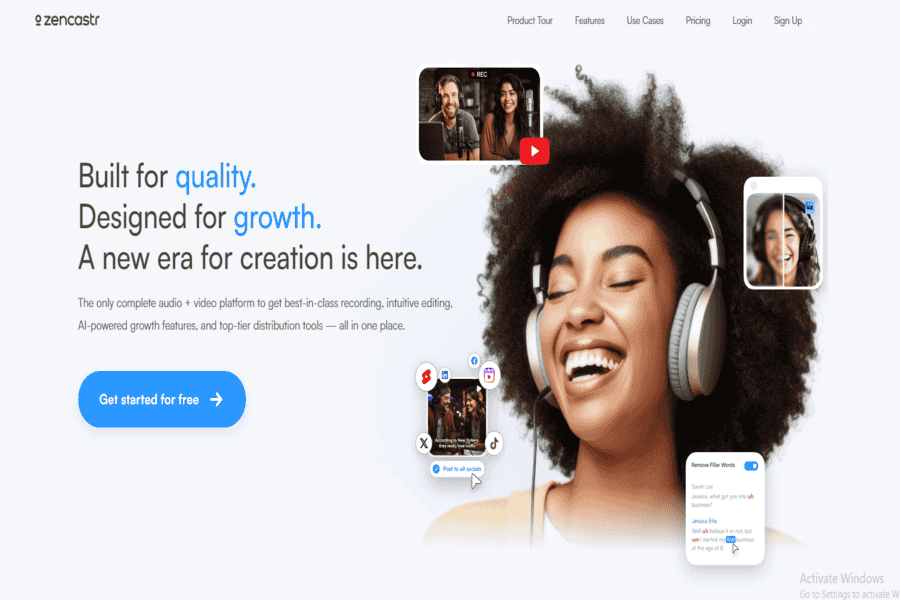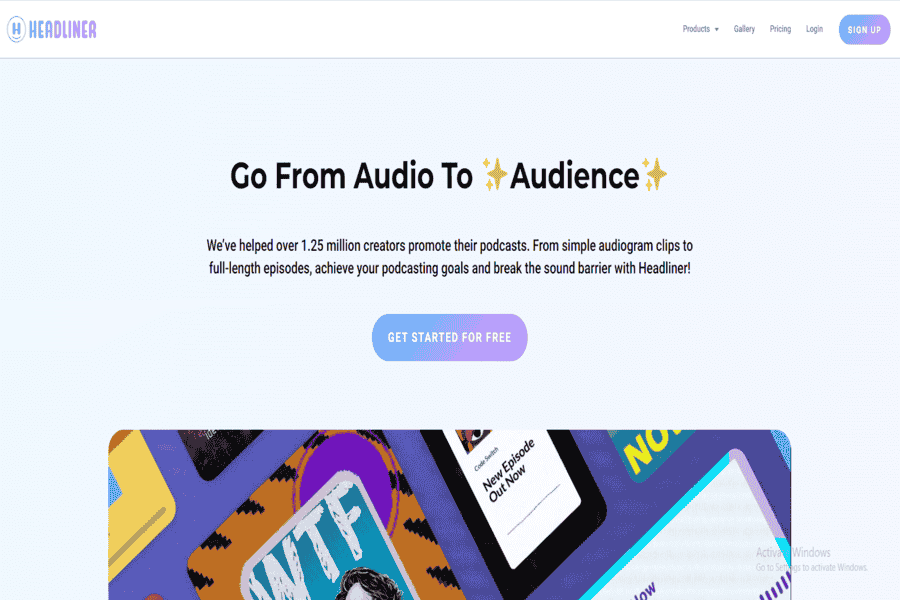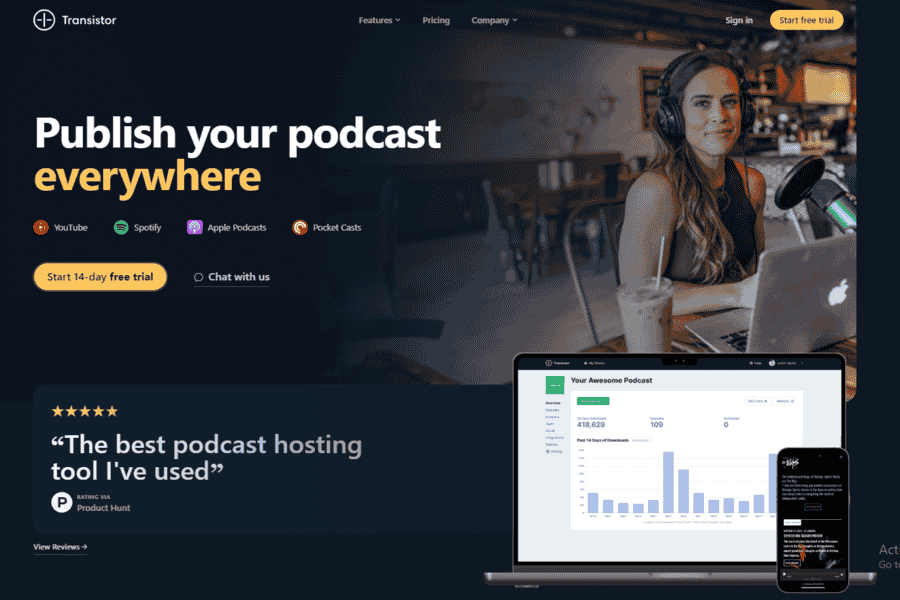Best AI Tools for Podcast Editing and Enhancement in 2025
November 28, 2024


The podcasting industry has experienced explosive growth in recent years, with millions of podcasts available across various platforms. To stand out in this crowded marketplace, podcasters must deliver high-quality audio content that is engaging, informative, and professionally edited. Artificial Intelligence (AI) has emerged as a powerful tool to streamline and enhance podcast editing, allowing creators to focus on content creation rather than technical details.
With the help of AI Tools for Podcast Editing and Enhancement, podcasters can easily remove background noise, adjust audio levels, and add music and sound effects. Additionally, Video generation tools can be used to create visually appealing video podcasts, which can help attract a wider audience.
AI podcast editing uses artificial intelligence algorithms to automate various aspects of the podcast editing process. These tools can identify and remove background noise, enhance audio quality, transcribe speech to text, and even suggest edits to improve the overall flow and clarity of the podcast.
AI podcast editing tools have revolutionized the podcasting industry by providing a suite of powerful features that significantly enhance the production process:
AI can automatically identify and remove background noise, such as traffic, wind, or ambient noise, resulting in cleaner and more professional audio.
AI-powered transcription tools can accurately convert audio into text, making editing, searching, and transcribing podcasts for various purposes easier.
AI can repair damaged audio files, such as those with clicks, pops, or hisses, restoring them to their original quality.
AI can automatically adjust volume levels, ensuring consistent sound throughout the podcast.
AI can fine-tune the frequency response of audio, optimizing it for different listening environments.
AI can automatically identify and separate different speakers, making editing and organizing the podcast easier.
AI can detect and remove filler words like “um,” “uh,” and “like,” improving the overall flow and clarity of the podcast.
AI-powered tools can suggest edits, such as cutting out silent pauses or rearranging segments, streamlining the editing process.
AI-generated transcripts and subtitles can make podcasts more accessible to a wider audience, including those who are deaf or hard of hearing or those who prefer to consume content visually.
AI can translate podcasts into multiple languages, expanding the reach of the content to a global audience.
The tool should eliminate background noise, such as traffic, wind, or room noise.
Accurate transcription is essential for editing, creating transcripts, and generating subtitles.
The tool should be able to improve audio quality, including equalization, compression, and noise reduction.
Accurate speaker identification is crucial for multi-person podcasts, allowing for easier editing and organization.
The tool should be able to automatically detect and remove filler words like “um,” “uh,” and “like.”
The tool should have a user-friendly interface that is easy to navigate, even for beginners.
Avoid tools with a steep learning curve. A easy tool to pick up and use will save you time and frustration.
The tool should be compatible with popular audio editing software like Adobe Audition, Audacity, or GarageBand.
The tool should integrate seamlessly into your existing workflow, minimizing the need for manual data transfer and conversion.
Evaluate the different tools’ pricing plans, considering factors like the number of editing hours, storage space, and advanced features.
Consider the long-term value of the tool, including potential future updates and support.
Good customer support is essential for addressing technical issues and getting assistance when needed.
An active user community can provide valuable tips, troubleshooting, and support.

Descript offers AI-powered podcast editing, transcription, and sound design tools in a single platform.
User-friendly; strong transcription accuracy; versatile audio and video editing.
Limited advanced editing options.
Free for basic features; paid plans from $12/month.

Automatic post-production tool that enhances audio quality by reducing background noise, leveling, and more.
Excellent audio enhancement; affordable; automated workflow.
Limited editing capabilities.
Free for up to 2 hours; premium plans from $11/month.

This AI tool is part of Adobe’s suite, which focuses on podcast editing, voice isolation, and noise reduction.
High-quality editing tools; integrates with Adobe suite.
Limited features in beta; expensive Adobe subscription.
Included in Adobe Creative Cloud, starting at $20.99/month.

The AI-powered tool removes filler words and background noise from audio recordings.
Quick cleanup; ideal for podcasters.
Limited to audio cleaning.
Starts at $10/month.

Podcast editing and hosting tool with automated audio cleanup and music additions.
Simple interface; all-in-one podcast solution.
Limited advanced editing tools.
$32/month.

Podcast editing software focusing on spoken-word content, with noise reduction and leveling.
High-quality audio output; professional-grade tools.
Learning curve for new users.
Starts at $95 (one-time).

AI noise-canceling tool for audio and video calls is also useful for podcast recording.
Excellent noise reduction; supports live recording.
Limited editing features.
Free for limited use; premium starts at $5/month.

Podcast creation suite with AI editing tools, noise reduction, and transcription.
Easy to use; integrates with multiple platforms.
Limited advanced editing.
Free basic plan; premium from $9.99/month.

Mobile-based AI audio editor for quick podcast editing.
Mobile-friendly, easy-to-use interface.
Limited functionality on the desktop.
Free version; premium starts at $4.99/month.

AI transcription and translation for podcast episodes are ideal for repurposing content.
Fast, accurate transcription; multi-language support.
Limited audio editing features.
From $10/hour for transcription.

Text-to-speech tool for turning podcast transcripts into high-quality audio in multiple voices and languages.
High-quality voice options; multi-language support.
Limited editing features for existing audio.
Free basic plan; premium from $7.99/month.

AI tool for podcast marketing and audience growth, offering insights for targeted promotion.
Detailed analytics helps with audience targeting.
Limited editing functions, mainly for analytics.
Free trial; paid plans start at $49/month.

Podcast recording and editing software with cloud collaboration for multiple hosts.
Collaborative editing; mobile-friendly.
Limited AI-specific features.
Starts at $7.99/month.

AI tool for transcribing, summarizing, and extracting insights from podcast episodes.
Excellent for content repurposing; easy to use.
Limited audio editing.
Plans start at $39/month.

It converts podcast audio into engaging video clips with captions, which is ideal for social media.
Easy to use; excellent for social promotion.
Limited audio-only editing.
Plans start at $10/month.

AI-powered tool for engaging podcast listeners, allowing the audience to leave voice messages.
Enhances listener interaction; easy integration.
Limited audio enhancement features.
Starts at $12/month.

AI-driven tool for custom audio branding and sound design.
Excellent for custom soundtracks; professional quality.
It’s pricey for small podcasters.
Custom pricing.

Podcast recording and editing tool with high-quality audio and video recording.
Excellent audio quality; remote recording.
Limited editing tools for complex audio.
Free for basic; premium starts at $20/month.

AI tool to create promotional video clips for podcasts optimized for social media.
Easy to use; great for marketing.
Limited editing for audio alone.
A free plan is available; the premium starts at $12.95/month.

Podcast hosting and analytics platform with tools for growing podcast audiences.
High-quality hosting; advanced analytics.
Limited editing tools.
Starts at $19/month.
While AI-powered podcast editing tools offer numerous benefits, there are several challenges to consider:
AI tools may need help with complex audio scenarios, such as background noise in noisy environments or accents, leading to less accurate transcriptions and noise reduction.
AI may have difficulty accurately recognizing and transcribing accents and dialects, potentially impacting the quality of transcriptions and automated editing.
Podcasters may be concerned about the privacy of sensitive information, such as personal anecdotes or business discussions; AI tools may process that.
It’s important to understand how AI tool providers store and use user data to ensure data privacy and security.
Some AI tools may have high upfront costs or subscription fees, making them less accessible to smaller podcasters.
It’s important to evaluate the value proposition of each tool to determine if the benefits outweigh the costs.
Some AI tools may have a steep learning curve, requiring significant time and effort to master.
Users may need technical knowledge to configure and optimize AI tools for their specific needs.
The future of AI podcast editing tools is promising, with several exciting trends on the horizon:
AI tools can provide real-time feedback and suggestions during recording, allowing immediate adjustments and improvements.
AI can learn individual podcasters’ preferences and styles, tailoring editing suggestions to their needs.
AI tools can understand the semantic meaning of audio content, enabling more intelligent editing and analysis.
AI tools may integrate seamlessly with popular video editing software, social media platforms, and other digital tools.
AI can automate podcast distribution to various platforms and optimize them for different devices.
AI tools should be designed to be fair and unbiased, avoiding biases that could negatively impact the content.
Strong data privacy measures should be implemented to protect user data and prevent unauthorized access.
AI tools should be transparent about their decision-making processes, allowing users to understand how the tools work.
In conclusion, AI-powered podcast editing tools have revolutionized how podcasters create and produce high-quality content. These tools have empowered podcasters to focus on what truly matters: creating engaging and informative content by automating tedious tasks, enhancing audio quality, and improving overall efficiency. As AI technology advances, we can expect to see even more innovative and powerful tools that will push the boundaries of podcasting and storytelling.
